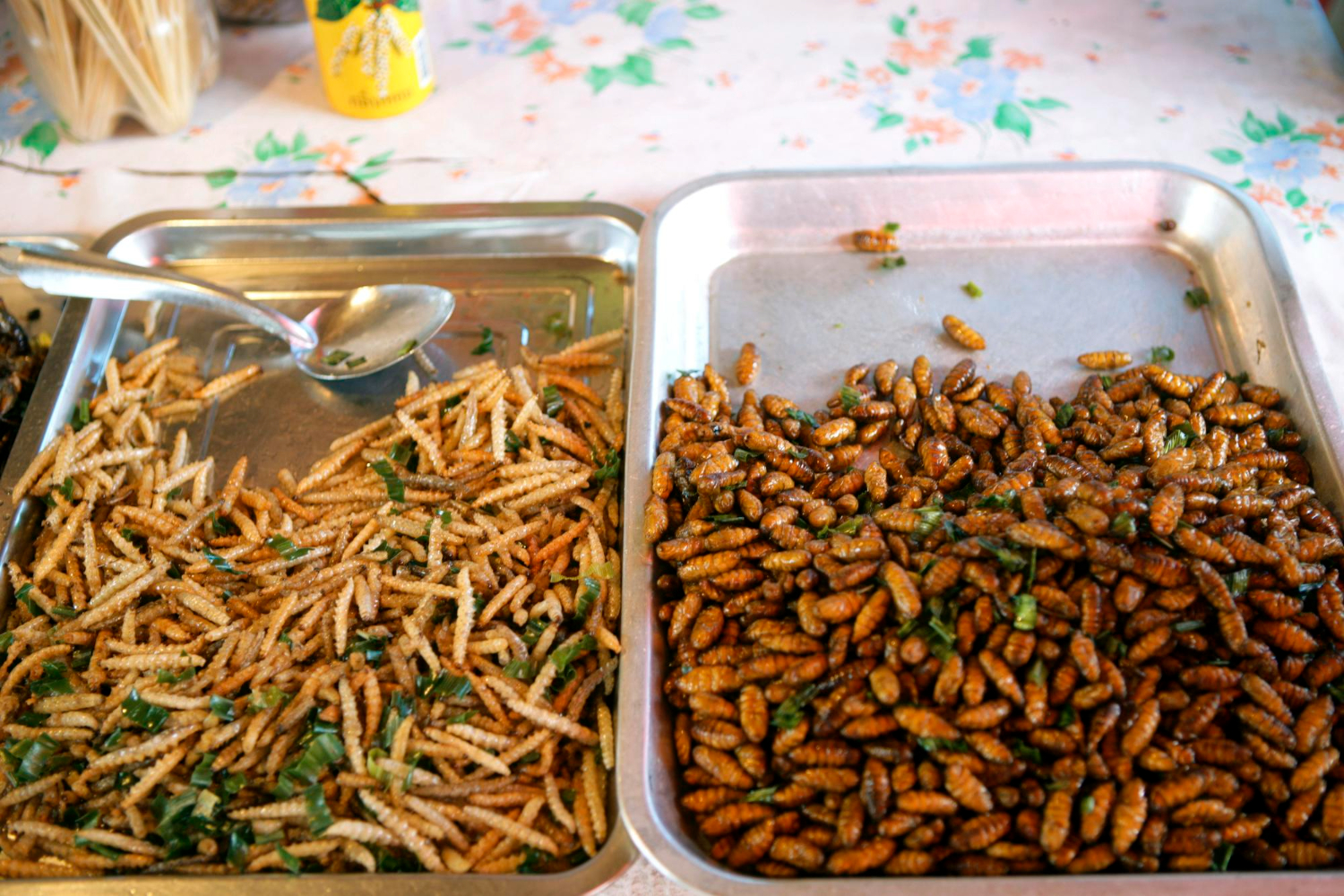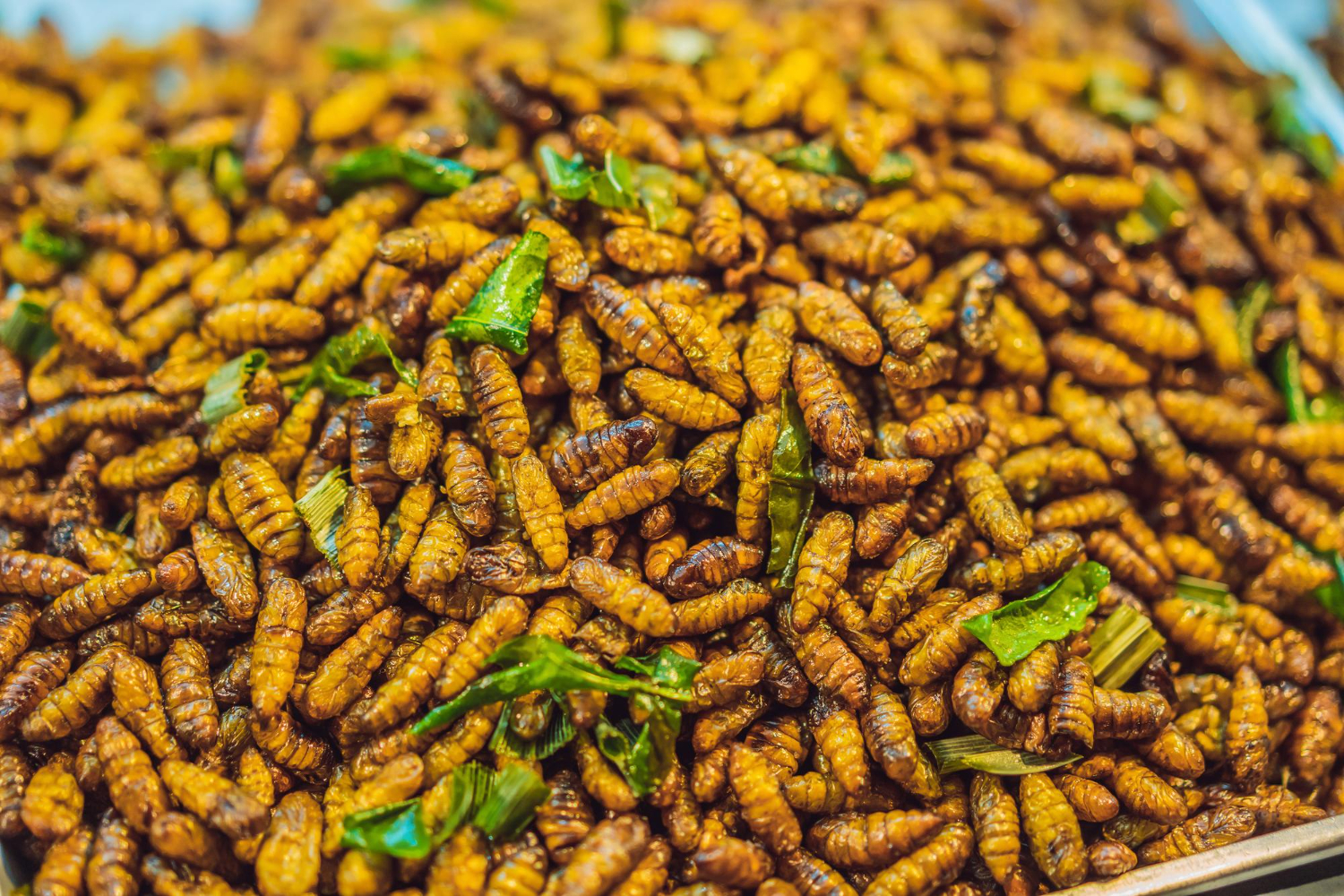Insects have been used for millennia in some food cultures around the world, but they are only just beginning to gain mainstream attention as a sustainable alternative to traditional meat. Indeed, these little crawling creatures could well revolutionize our diet thanks to their many advantages.
First of all, insects are an exceptional source of protein. They indeed contain high amounts of high-quality proteins, containing all the essential amino acids that our body needs. For example, locusts contain almost 70% protein, while beef contains only 25%. Protein is necessary for tissue growth and repair, for maintaining muscle mass, and for the production of enzymes and hormones. Integrating insects into our diet would therefore make it possible to meet protein needs in a more efficient and sustainable way.
In addition to their protein content, insects also have a significantly reduced ecological footprint compared to traditional farming. This is because raising insects requires much less water, space and food than raising livestock. For example, to produce the same amount of protein, breeding locusts requires 12 times less feed and 2000 times less water than raising beef. In addition, insects emit much less greenhouse gases than livestock. By integrating more insects into our diet, we could significantly reduce our ecological footprint and contribute to the fight against climate change.
Also, insects are extremely versatile in culinary terms. They can be used in many recipes, whether savory or sweet dishes. The possibilities are limitless ! They can be enjoyed in the form of skewers, pasta, flour for making bread, cookies or protein smoothies. Insects have a neutral flavor that pairs well with other ingredients, and they add a crunchy texture to our dishes. By experimenting with insects, we could expand our culinary palette and discover new flavors.
Additionally, insects are extremely nutritious. In addition to protein, they are also a source of fiber, vitamins and minerals. For example, locusts contain high amounts of vitamin B12, iron, calcium and omega-3. By integrating insects into our diet, we could therefore improve our overall health and prevent certain nutritional deficiencies.
Finally, insect production is relatively inexpensive and can be done on a small scale. This means that local communities, particularly in developing countries, could benefit from this new economic sector. Insects could help fight world hunger by providing an affordable and easily accessible source of food.

Future perspectives on insect consumption
Exploring new dimensions of insect consumption reveals that it is not just an emerging food solution, but a culinary revolution that could reshape the way we perceive and consume food. This section will delve into the future possibilities and implications of adopting insects as a food alternative.
The role of insects in culinary innovation
The integration of insects into modern cooking could mark the start of an era of culinary innovation. Chefs and foodies around the world are already harnessing the potential of insects to create unique and innovative dishes. The distinct texture and palette of flavors offered by insects allow us to experiment and push the boundaries of traditional gastronomy, revealing unexplored taste associations and avant-garde recipes. This opens a new chapter in the culinary art, making insects a gourmet option for those looking for new taste experiences.
Insects and sustainable development
Incorporating insects into our diets could also play a crucial role in achieving the Sustainable Development Goals. Insect production methods, requiring fewer natural resources, are more aligned with ecological and sustainability principles. Insects could be a key link in establishing a more resilient and equitable global food system. They could help alleviate pressure on ecosystems providing a greener solution to the growing demand for protein.
Evolution of perception and legislation
The transition to wider acceptance of insect consumption will also require a change in cultural perception and an adaptation of food regulations. Countries where insect consumption is less common will need to address psychological and sociocultural barriers through education and awareness campaigns to destigmatize insect consumption. At the same time, the development of clear quality and safety standards will help reassure consumers about the health and nutritional aspects of insect products.
Insects as a solution to malnutrition
The implications of insects as a food source also extend to combating malnutrition. Due to their rich nutritional profile, they can serve as a solution to dietary deficiencies, particularly in regions where access to traditional protein sources is limited. The ease of insect production could reduce the prevalence of malnutrition and promote food security in many parts of the world.
The integration of insects into the daily diet: an exploration of new horizons
The introduction of insects into our daily diet is not only an ecological and nutritious alternative, but also a way to explore new culinary and cultural horizons. It is crucial to approach this topic from an innovative angle, while exploring how social acceptance of insect consumption can be increased.
The impact on eating habits and culinary diversity
The integration of insects into our daily menus can disrupt our traditional eating habits. They offer unexplored culinary diversity, allowing the creation of innovative and diverse dishes, adapting to different diets. This diversification can lead to a more balanced and varied diet, enriching our palette of flavors and textures. It pushes our culinary limits and pushes us to reevaluate our food preferences.
Changing preferences and acculturation
Acceptance of insects as food goes beyond simple familiarization. This involves an acculturation process where food prejudices are challenged. For many, eating insects is a repulsive idea, but with proper exposure and education, these psychological barriers can be overcome. Regularly tasting insects can influence our preferences, change our palates and create new dietary standards, making insects a regular part of our diet.
The synergy between tradition and modernity
Insects have been a traditional food source for many cultures, but integrating them into modern cuisine can create a synergy between tradition and innovation. The rediscovery of traditional preparation methods, combined with modern culinary techniques, can give rise to fusion cuisine, where past and present meet to create a sustainable and diverse gastronomic future.
The challenge of education and awareness
To promote the adoption of insects in our diet, an education and awareness effort is essential. Targeted educational programs and culinary workshops can demonstrate the gastronomic potential of insects and promote their social acceptance. By educating people about the ecological and nutritional benefits of insects, we can combat stigma and encourage positive change in eating attitudes.












